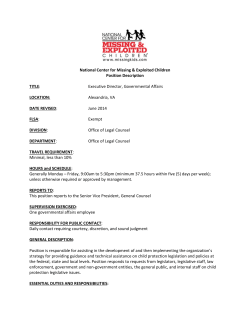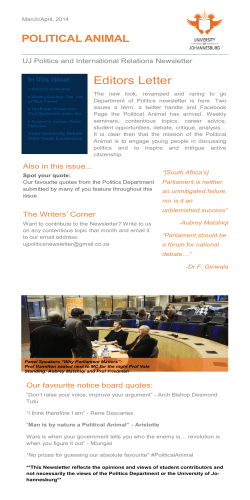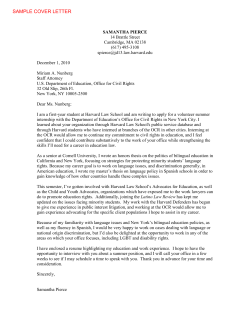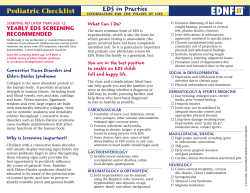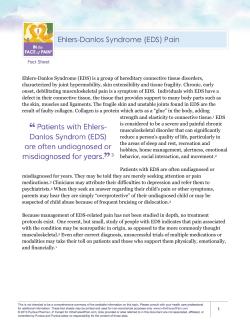
CURRICULUM VITAE STEPHEN MARTIN WALT
CURRICULUM VITAE STEPHEN MARTIN WALT Born July 2, 1955 Married: two children PRESENT POSITION: Robert and Renée Belfer Professor of International Affairs John F. Kennedy School of Government Harvard University PERMANENT MAILING ADDRESS: John F. Kennedy School of Government 79 John F. Kennedy St. Cambridge, MA Phone: (617) 495-5712 FAX: (617) 496-8963 Email: [email protected] Blog: http://walt.foreignpolicy.com Twitter: @StephenWalt EDUCATION: B.A. M.A. Ph.D. Stanford University, (International Relations, 1977, with distinction) University of California, Berkeley, (Political Science, 1978) University of California, Berkeley, (Political Science, 1983) AWARDS and HONORS: “Top Quark” Award for Best Political Blog of 2010, selected by Louis Lapham and 3 Quarks Daily. Chosen as one of “Top 10 Global Thinkers” by PULSE Media, 2009 and 2010. Finalist, Arthur Ross Book Award for Taming American Power: The Global Response to U.S. Primacy, 2006 Finalist, Lionel Gelber Book Award for Taming American Power: The Global Response to U.S. Primacy, 2006 Fellow, American Academy of Arts and Sciences, 2005-present. Hugh E. Nott Best Article Prize for “American Primacy: Its Prospects and Pitfalls.” Naval War College Review, 2003 Edgar S. Furniss National Security Book Award for The Origins of Alliances, 1988 POSITIONS HELD: Contributing Editor, Foreign Policy, 2009-present. Academic Dean, John F. Kennedy School of Government, 2002-2006. Robert and Renee Belfer Professor of International Affairs, John F. Kennedy School of Government, Harvard University, 1999-present. S. Rajaratnam Visiting Professor of Strategic Studies, Institute for Defense and Security Studies, Nanyang Technological University, Singapore (January 2000). Master, Social Science Collegiate Division, and Deputy Dean, Division of Social Sciences, University of Chicago, 1996-1999. Professor of Political Science, University of Chicago, 1995-1999. Associate Professor of Political Science, University of Chicago, 1989-1995. 1 Assistant Professor of Politics and International Affairs, Princeton University, 1984-1989. Guest Scholar, The Brookings Institution, 1988. Resident Associate, Carnegie Endowment for International Peace, 1986-87. Research Fellow, Center for Science and International Affairs, Harvard University, 1981-1984 Professional Staff, Center for Naval Analyses, 1980-81, plus Summer 1978, 1979, 1982. FELLOWSHIPS AND GRANTS: Gift from Michael Zak to support Workshop of U.S. Grand Strategy, November 2012. Faculty Research Grant, Weatherhead Center for International Affairs, 2001-2002. Travel Grant, Ford Foundation, 2001-2002. Principal Investigator, Building a Program in International Security Policy at the University of Chicago, Smith-Richardson Foundation, 1997-98, 1998-2000. Research Grant, U.S. Institute of Peace, 1992-93. MacArthur Foundation Research and Writing Grant, 1987-88. Post-Doctoral Fellowship, Center for Science and International Affairs, Harvard University, 1983-84. Pre-Doctoral Research Fellowship, Institute for the Study of World Politics, 1981-82, Supplemental Grant, 1982-83. Graduate Research Fellowship, Center for Science and International Affairs, Harvard University, 1981-82 and 1982-83. PUBLICATIONS: Books: The Israel Lobby and U.S. Foreign Policy (with John. J. Mearsheimer) (New York: Farrar, Straus & Giroux, 2007). Foreign editions published in Brazil, Canada, Catalonia, China, Croatia, Czech Republic, Denmark, Egypt, France, Germany, Greece, Holland, Indonesia, Italy, Japan, Korea, Poland, Romania, Russia, Spain, Turkey, and the United Kingdom. Taming American Power: The Global Response to U.S. Primacy (New York: W.W. Norton, 2005). Foreign editions published in China, France, Greece, Japan, Korea, and Serbia. Revolution and War (Ithaca: Cornell University Press, 1996). The Origins of Alliances (Ithaca: Cornell University Press, 1987). Foreign editions published in Greece, Serbia, South Korea, and China. Reports, Journal Articles and Book Chapters: “Leaving Theory Behind: Why Hypothesis Testing Has Become Bad for IR,” (with John J. Mearsheimer), European Journal of International Relations (forthcoming) “Theory and Policy in International Relations: Some Personal Reflections,” Yale Journal of International Affairs, vol. 7, no. 2 (September 2012). “The End of the American Era,” The National Interest, no. 116 (November-December 2011). 2 “The Myth of American Exceptionalism,” Foreign Policy, no. 188 NovemberDecember 2011) “Where Do Bad Ideas Come From (and why don’t they go away)?” Foreign Policy, no. 183 (January-February 2011). “Cutting Losses in Wars of Choice: Obstacles and Strategies,” in Stephen Van Evera and Sidharth Shah, eds., The Prudent Use of Power in American National Security Strategy (Boston: The Tobin Project, 2010). “Israel/Palestine: Two States for Two Peoples—If Not Now, When?” Boston Study Group on Middle East Peace, available online from the Foreign Policy Association at http://www.fpa.org (June 2010, co-authored). “Realism and Security,” in R. Denemark, ed., The International Studies Encyclopedia, (New York: Wiley-Blackwell, 2010) “The Blind Man and the Elephant in the Room: Robert Lieberman and the Israel Lobby” (with John J. Mearsheimer), Perspectives on Politics 7, no. 2 (June 2009). “Is it Love or the Lobby?: Explaining America’s Special Relationship with Israel” (with John J. Mearsheimer), Security Studies 18, no. 1 (January 2009) “Alliances in a Unipolar World,” World Politics 61, no. 1 (January 2009). “The Shattered Kristol Ball,” The National Interest 97 (September/October 2008) “The Israel Lobby and U.S. Foreign Policy” (with John J. Mearsheimer) Middle East Policy 13, no. 3 (Fall 2006). “The Israel Lobby,” (with John J. Mearsheimer), London Review of Books, March 23, 2006. “Taming American Power,” Foreign Affairs 84, no. 5 (September/October 2005). “The Relationship between Theory and Policy in International Relations,” Annual Review of Political Science 8 (2005). “In the National Interest: A New Grand Strategy of American Foreign Policy,” Boston Review, Vol. 30, no. 1 (February/March 2005). “An Unnecessary War,” (with John J. Mearsheimer), Foreign Policy 133 (January/February 2003). Reprinted in M. Sifry and C. Cerf, The Iraq War Reader, (N.Y. Touchstone, 2003) and eight foreign journals. “The Enduring Relevance of the Realist Tradition,” in Ira Katznelson and Helen Milner, eds., Political Science: State of the Discipline III (New York: W.W. Norton and Co., 2002). “Keeping the World Off-Balance: Self-restraint and U.S. Foreign Policy,” in G. John Ikenberry, ed., America Unrivaled: The Future of the Balance of Power, (Ithaca: Cornell University Press, 2002). Also published as “Mantener al mundo’fuera de balance’: el autocontrol y la politica exterior de Estados Unidos,” in Politica y gobierno 9, no. 1 (2002). “American Primacy: Its Prospects and Pitfalls,” Naval War College Review 55, no. 2 (Spring 2002). 3 “Beyond bin Laden: Reshaping U.S. Foreign Policy,” International Security 26, no. 3 (Winter 20012002). “Fads, Fevers, and Firestorms: Understanding Political Contagion,” Foreign Policy, no. 121 (November/December 2000). “NATO’s Fragile Future,” in David Haglund, ed., What NATO for Canada? (Kingston: Queen’s University Press, 2000). “NATO’s Future (In Theory),” in M. Brawley and P. Martin, eds., Allied Force or Forced Allies?: NATO after Kosovo (New York: St. Martin’s Press, 2001). “The U.S.-Japan-China Triangle: Will The United States Remain Engaged?” in Yuen Foong Khong, ed., Security Challenges and Regional Responses in the Asia-Pacific in the 21st Century (Singapore: Institute for Defence and Strategic Studies, 2000). “Two Cheers for Clinton’s Foreign Policy,” Foreign Affairs 79, no. 2 (March/April 2000). “Containing Rogues and Renegades: Coalition Strategies and Counter-Proliferation,” in Victor A. Utgoff, ed., The Coming Crisis: Nuclear Proliferation, U.S. Interests, and World Order (Cambridge: MIT Press, 2000). “A Model Disagreement,” International Security 24, no. 2 (Fall 1999); reprinted in Rational Choice and Security Studies: Stephen Walt and His Critics (Cambridge: MIT Press, 2000). “Rigor or Rigor Mortis?: Rational Choice and Security Studies,” International Security 23, no. 4 (Spring 1999); reprinted in Rational Choice and Security Studies: Stephen Walt and His Critics (Cambridge: MIT Press, 2000). “The Ties That Fray: Why Europe and America Are Approaching a Parting of the Ways,” The National Interest No. 54 (Winter 1998-99) "International Relations: One World, Many Theories," Foreign Policy no. 110 (Spring 1998). "The Precarious Partnership: Europe and America in a New Era," in Charles A. Kupchan, ed., Atlantic Security: Contending Visions (Washington, D.C.: Brookings/Council on Foreign Relations Press, 1998). "The Progressive Power of Realism," American Political Science Review 91, no. 4 (December 1997). “Why Alliances Endure or Collapse," Survival 39, no. 1 (Spring 1997). "Building Up New Bogeymen," Foreign Policy no. 106 (Spring 1997). "Rethinking Revolution and War: A Response to Goldstone and Dassel," Security Studies 6, no. 2 (Winter 1997). "Coalitions," in Patrick M. Cronin, ed., Project 2015: Alternatives for the Future (Washington, D.C.: NDU Press, 1996). "Collective Security and Revolutionary Change: Promoting Peace in the Former Soviet Empire," in George W. Downs, ed., Collective Security after the Cold War (Ann Arbor, MI.: University of Michigan Press, 1993). 4 "Multilateral Collective Security Arrangements," in R. Shultz et al, eds., Security Studies for the 1990s (New York: Pergamon-Brassey's, 1993). "Alliances, Threats, and U.S. Grand Strategy: A Reply to Kaufman and Labs," Security Studies 1, no. 3 (Spring 1992). "Revolution and War," World Politics 44, no. 3 (April 1992), reprinted in J. Goldstone, ed., Revolutions: Theoretical, Comparative, and Historical Studies (Boston: Little Brown, 1993). "The Renaissance of Security Studies," International Studies Quarterly 35, no. 2 (June 1991). "Alliance Formation in South Asia: Balancing and Bandwagoning in Cold War Competition," in R. Jervis and J. Snyder, eds., Dominoes and Bandwagons: Strategic Beliefs and Superpower Competition in the Asian Rimland (New York: Columbia University Press, 1991). "U.S. Grand Strategy: The Case for Finite Containment," International Security 14, no. 1 (Summer 1989), also published in D. Kaufman et al., eds., U.S. National Security for the 1990s (Boulder: Westview, 1992). "Alliances in Theory and Practice: What Lies Ahead?," Journal of International Affairs 43, no. 1 (Summer/Fall, 1989), reprinted in Charles Kegley and Eugene Wittkopf, eds., The Global Agenda, 3rd edition. "Two Cheers for Containment: Probable Allied Responses to U.S. Isolationism," in Ted Galen Carpenter, ed., Collective Security or Strategic Independence?: Alternative Strategies for the Future (Lexington, MA.: Lexington Books, 1989). "Testing Theories of Alliance Formation: The Case of Southwest Asia," International Organization 42, no. 2 (Spring 1988). "The Search for a Science of Strategy: A Review Essay," International Security 11, no.1 (Summer 1987). "Alliance Formation and the Balance of World Power," International Security 9, no. 4 (Spring 1985), reprinted in S. Miller and S. Van Evera, The Perils of Anarchy (MIT Press, 1996), and R. Art and R. Jervis, eds., International Politics, 4th ed., (Boston: Little Brown). "Causal Inferences and the Use of Force: A Critique of Force without War,” Professional Paper no. 279, (Alexandria, VA.: Center for Naval Analyses (May 1980). Working Papers, Occasional Pieces and Reviews: “International Affairs and the Public Sphere,” in Transformations of the Public Sphere, online symposium sponsored by the Social Science Research Council, July 2011, available online at http://publicsphere.ssrc.org/walt-international-affairs-and-the-public-sphere/ Foreign Policy (online); featured weblog at http://walt.foreignpolicy.com, January 2009-present. “Defending the Indefensible: A How-To Guide,” in Moustafa Bayoumi, Midnight on the Mavi Marmara (London: OR Books, 2010). 5 “Restoring Solvency: Barack Obama’s Foreign Policy Priorities,” American Review 1, no. 1 November 2009. “In the Fight over Settlements, Who Are Israel’s Real Friends?” Washington Post, March 21, 2010. “Settling for Failure in the Middle East,” Washington Post, September 20, 2009. “America Needs Realists, not Bill Kristol,” Salon.com, January 16, 2008. “Israel’s False Friends,” (with John J. Mearsheimer), Los Angeles Times, January 5, 2008. “Setting the Record Straight: A Response to Critics of ‘The Israel Lobby’” (with John J. Mearsheimer), December 2006, available online at http://hbpub.vo.llnwd.net/o16/video/olmk/setting_the_record_straight.pdf . “The Israel Lobby and U.S. Foreign Policy,” (with John J. Mearsheimer), Faculty Working Paper, John F. Kennedy School of Government (March 2006). “The World Watches as America Attempts its Restoration,” Financial Times, (October 19, 2005). "The Blame Game." Foreign Policy no. 151 (November/December 2005). “Bush Needs a Mideast Exit Plan,” Financial Times, (September 8, 2003). “Keeping Saddam in a Box,” (with John J. Mearsheimer), New York Times, (February 2, 2003). “Can Saddam Be Contained? History Says Yes,” (with John J. Mearsheimer) Occasional Papers, Belfer Center for Science and International Affairs, Cambridge, MA (November 2002). “Realists Are Not Alone in Opposing the War with Iraq,” (with John J. Mearsheimer), Chronicle of Higher Education Review, November 15, 2002. “A Policy Failure?” Boston Review, (October/November 2002). Reprinted in J. Cohen, ed., Who Defended the Country? (Beacon Press, 2003). “Fragile: Package With Care,” Boston Globe (September 30, 2001). “Nothing Revolutionary,” Review of International Studies 27, no. 4 (October 2001). "Alliances," in J. Krieger, ed., The Oxford Companion to the Politics of the World, 2nd. Ed. (New York: Oxford University Press, 2001). “Rush to Failure: The Flawed Politics and Policies of Missile Defense,” Harvard Magazine (May-June 2000). “Never Say Never," Foreign Affairs 78, no. 1 (January/February 1999). “The Hidden Nature of Systems,” Atlantic Monthly (September 1998). "Revolution and War," in J. Goldstone, ed., Encyclopedia of Political Revolutions (Washington, DC: Congressional Quarterly, 1998). "The Gorbachev Revolution and International Relations Theory," Diplomatic History 21, no. 2 (Summer 1997). 6 "Is There a Logic of the West?," World Policy Journal 11, no. 1 (Spring 1994). "The Mother of Battles Can Be a Bad Peace," Newsday, March 3, 1991. "Our Military Forces: Thinner, but Still Fit to Fight," Los Angeles Times, November 28, 1989. "Politicians and Professors: A Double Standard," Bulletin of the Atomic Scientists, July/August 1987. "Preserving the NATO Alliance," Journal of Commerce, June 11, 1987. "Debunking the Danger Posed by Radical States," The Los Angeles Times, Dec. 21, 1986. "Reagan Has Fooled Us Again," Chicago Tribune, October 23, 1986. "Arms Control: Why Clever Schemes Don't Work," Issues in Science and Technology 2, no. 2 (Winter 1985-1986). "Let's Switch Sides in South Africa," The Los Angeles Times, August 29, 1985. "Four Myths That Harm Our Foreign Policy," Christian Science Monitor, April 8, 1982. PROFESSIONAL ACTIVITIES: (partial list) Member, Global Action Council on Geopolitical Risks, World Economic Forum, 2012-present Board of Governors, S Rajaratnam School of International Affairs, Nanyang Technological University, Singapore, 2012-present. External Review Committee, Lee Kwan Yew School of Public Policy, Singapore, 2012. Governing Council, American Political Science Association, 2011-present. Member, Task Force on Education and National Security, Council on Foreign Relations, 2011-12 Board of Overseers, Watson Institute of International Studies, Brown University, 2010-present. Member, Task Force on Alternative Strategies for Afghanistan, New America Foundation, 2010 Consultant, National Intelligence Council and U.S. State Department (2006-2011) Panelist, World Economic Forum, Davos, Switzerland (2006). Consultant, S. Rajaratnam School of International Studies, Nanyang Technological University, 2003-present. Member, Task Force on Transatlantic Relations, Council on Foreign Relations, 2003-2004. Member of Prize Jury, Arthur Ross Book Award, Council on Foreign Relations, 2003, 2004, 2005, 2007, 2008, 2009, 2010, 2011, 2012. Co-editor (with Robert Jervis and Robert Art), Cornell Studies in Security Affairs, Cornell University Press, 1993-present). Co-chair, Editorial Board, International Security, 2005-present. Board of Directors, Bulletin of the Atomic Scientists, 1992-2001. Editorial Board, Security Studies, 1990-present. Editorial Board, Foreign Policy, 1997- present. Editorial Board, Bulletin of the Atomic Scientists, 1995-2001. Editorial Board, Columbia International Affairs Online Service, 1996-present. Editorial Board, Journal of Cold War Studies, 1998-present. Editorial Board, International Relations, 2004-present. Member, Council on Foreign Relations, 2002-present. Board of Editors, World Politics, 1985-89. Article referee for International Security, International Organization, American Political Science Review, 7 Perspective on Politics, Political Science Quarterly, Journal of Conflict Resolution, International Studies Quarterly, International Relations, World Politics, Rationality and Society, Security Studies, European Journal of International Relations, Journal of Politics (partial list). Study Director, Chicago Group on Defining the National Interest, Council on Foreign Relations, 1995-96 External Review Committee, Department of Political Science, Duke University, 1995. External Review Committee, Department of Political Science, Northwestern University, 2001. External Review Committee, Institute of International Studies, Stanford University, 2003. Member, American Academy of Arts and Sciences, American Political Science Association, International Studies Association, International Institute for Strategic Studies. Member, American Political Science Association Ad Hoc Committee on Relations with the National Science Foundation, 1999-2000. Chairman, Strategic Issues Working Group, IREX-USSR Academy of Sciences Exchange Program for Young Scholars of International Relations, 1988-1991. Section Head, National Security Studies, 1990 Annual Meeting, American Political Science Association. HARVARD UNIVERSITY ACTIVITIES (partial list): Appointments Committee, Harvard Kennedy School, 2000-2002 and 2008-2011. Standing Committee on Higher Degrees in Public Policy, 2010-present. Faculty Chair, International Security Program, Belfer Center for Science and International Affairs. Member, Faculty Steering Committee, Middle East Initiative, Harvard Kennedy School Member, Faculty Steering Committee, Carr Center for Human Rights Policy, Harvard Kennedy School Member, Executive Committee and Faculty Associate, Weatherhead Center for International Affairs. 8
© Copyright 2026





